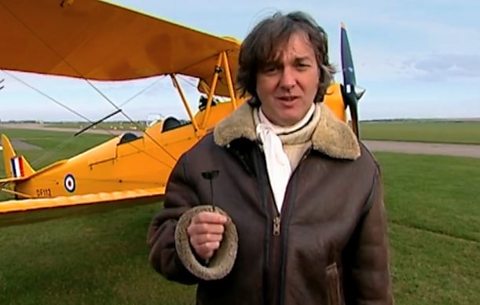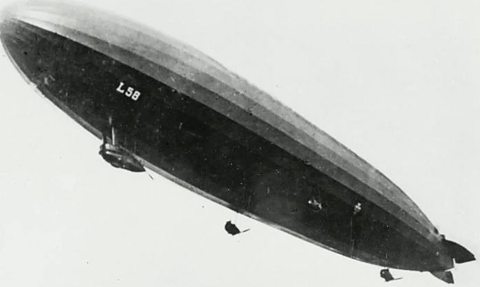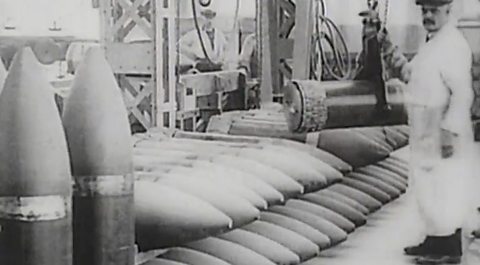DAN SNOW:Hello, I'm Dan Snow. When you're considering what happened next after WWI, perhaps the most important thing you have to get familiar with is the Treaty of Versailles. This was the agreement made between the victors and defeated Germany.
DAN SNOW:It determined how much compensation the Allies would receive from Germany and was meant to ensure that Germany would never be able to create such conflict again. It's also a document that holds special personal significance for me, as a film I made a few years ago demonstrates.
DAN SNOW:From those who fought on the front lines to the family they left at home, the Great War had an immense and unforgettable impact on the lives of millions of people. Now 100 years on, individual stories are being kept alive by the very personal, very precious mementos and keepsakes that give us a memory of those dark days.
DAN SNOW:'This is my Great War heirloom, a draft copy of the Treaty of Versailles that belonged to British prime minister David Lloyd-George.' The treaty secured peace after the First World War and it's a document that I've got a very personal connection to.
DAN SNOW:'David Lloyd George was the British prime minister during the later stages of the First World War. Leader of a coalition wartime government, he was instrumental in the drafting of the Treaty of Versailles.' He was also my great-great-grandfather.
DAN SNOW:I remember, as a kid, being amazed by my gran's stories about his humble background being raised in this cobbler's shop in a tiny village in North Wales. And it is inspiring going from this to being the man that helped win the First World War and broker the Treaty of Versailles.
DAN SNOW:'The treaty was a peace document, signed at the vast palace of Versailles in France, between the recently defeated Germany and the Allies. The fighting actually ended in November 1918, but it wasn't until June 1919 that a formal state of peace was declared between the two sides with the signing of this treaty.'
DAN SNOW:I've never seen the Treaty of Versailles, so I've come here to a small village in North Wales called Llanystumdwy, where my great-great-grandfather grew up. They've got something very special here, not the treaty itself, but Lloyd-George's personal draft copy of it.
DAN SNOW:'This is a very special moment for me. I've never seen this before, certainly never handled it.' This is incredible because part of me thinks this is one of the most important documents of modern history, it reshaped the map of Europe, but on a personal level this is an incredible piece of my family history, this is my great-great-grandfather's role in bringing the First World War to an end and imposing peace on Germany. 'He's signed it D Lloyd-George, and he wrote the date, May 7th 1919.' So the treaty divides into several sections. First of all you've got what the Allies want to do with the German territory itself.
DAN SNOW:Germany had been this vast empire right in the heart of central Europe, but now bits of it would be given away. Big chunks of Germany now becoming pieces of France. Also here Poland, enormous bits of Germany were given to the new state of Poland. 'This deals with trying to reduce Germany's military power.
DAN SNOW:'One of the big things they did was they completely destroyed the German Navy.' "The construction or acquisition of any submarine, even for commercial purposes, shall be forbidden in Germany." Of course submarines played a huge role in the First World War, almost bringing Britain to her knees.
DAN SNOW:'Article 231 deliberately sets out to blame Germany for the First World War.' And once you've pinned the blame on Germany, then of course, you can force them to pay for that damage. 'In the end that figure is round about ôÈ6 billion.
DAN SNOW:'It's a lot of money today, back then it was an extraordinary amount of money,' and it proved enormously unpopular in Germany. 'Even my great-great-grandfather, one of the architects of the treaty, thought it too harsh, saying, "We shall have to fight another war again in 25 years' time."
DAN SNOW:It's amazing standing here nearly 100 years later and looking at this document, the treaty that ended WWI.' 'The fact that my great-great-grandfather was one of the key authors of this document makes it a special piece of family history as well.' And for that reason, this is my Great War heirloom.
Video summary
Dan Snow examines the discussions and agreements that led to the signing of the Treaty of Versailles.
Looking at the different sections of the Treaty, such as land Germany lost to neighbouring countries, loss of their armed forced, the War Guilt Clause leading to the reparations agreed at ôÈ6 billion.
He discusses the impact on Germany and considers what the long-term consequences of the treaty were feared to be- even at the time it was signed and David Lloyd Georgeãs fear of another war in the future.
Teacher Notes
Key Stage 3:
Could be used as part of a sequence of lessons looking at the terms of the Treaty.
Students could look at the background to each of the ãBig 3ã at Versailles (Britain, France and USA) and decide what each country might want from the Treaty, given how they had been affected by the events of the War.
The clip could then be used to show what happened before students evaluate who would be most satisfied with the Treaty and why Lloyd-George might have feared another war as a result of the Versailles agreement.
Key Stage 4:
Could be used as part of a lesson looking at interpretations of the Treaty of Versailles.
Students could look at different sources about the Treaty, then watch this clip.
They could compare it to cartoons and interpretations to see which ones Lloyd- Georgeãs perspective is closest matched to.
This clip will be relevant for teaching History at KS3 and KS4/GCSE in England Wales and Northern Ireland.
Also at 3rd Level, 4th Level, National 4/National 5 and Higher in Scotland.
How challenging was the life of a pilot in World War One? video
James May looks at the dangers and challenges facing pilots in World War One.

How did Britain deal with the Zeppelin threat during World War One? video
Ben Robinson examines the Zeppelin threat to Britain during World War One.

How did Britain meet demands for weapon production in World War One? video
Saul David on how Britain struggled to produce the weapons to supply the army in World War One.
